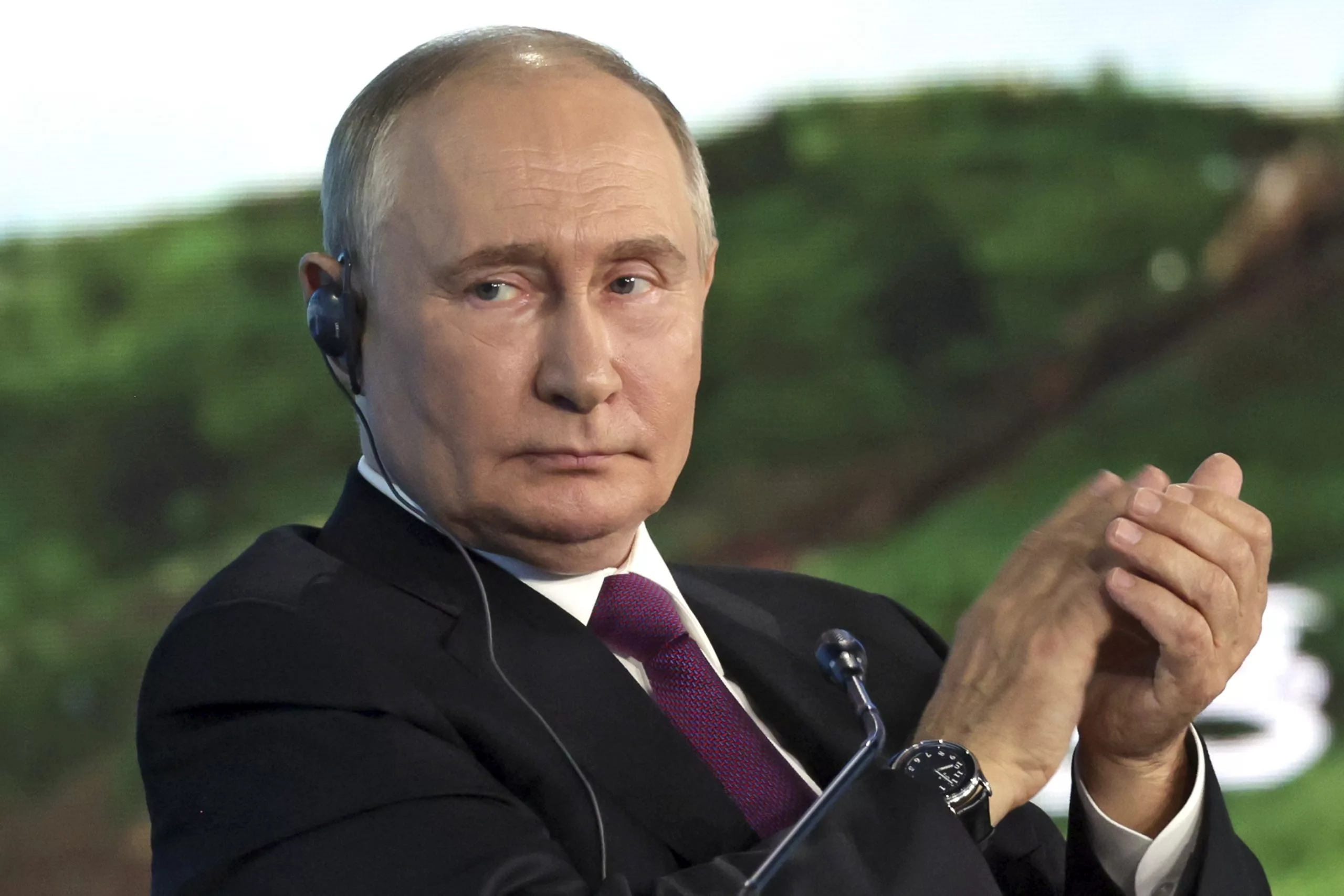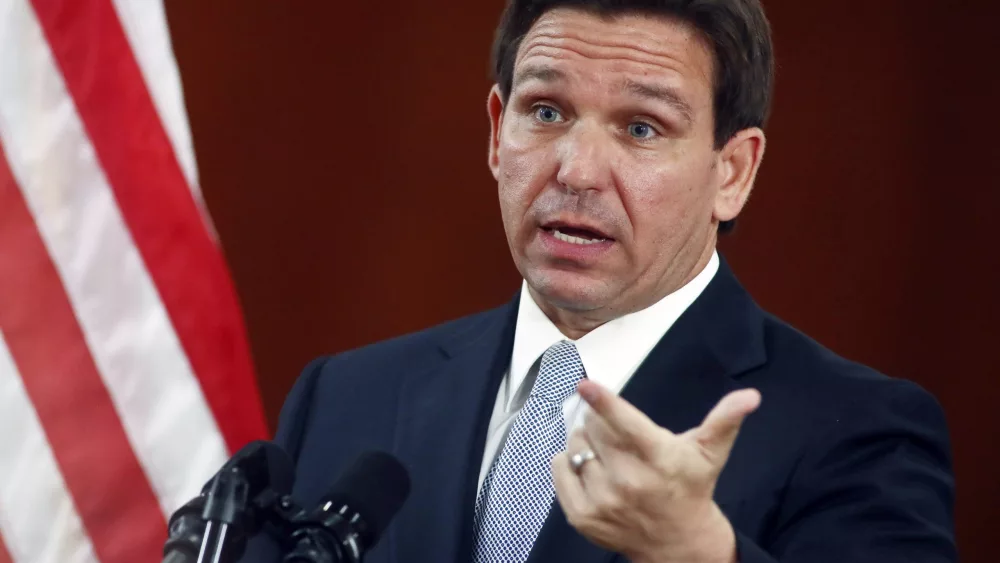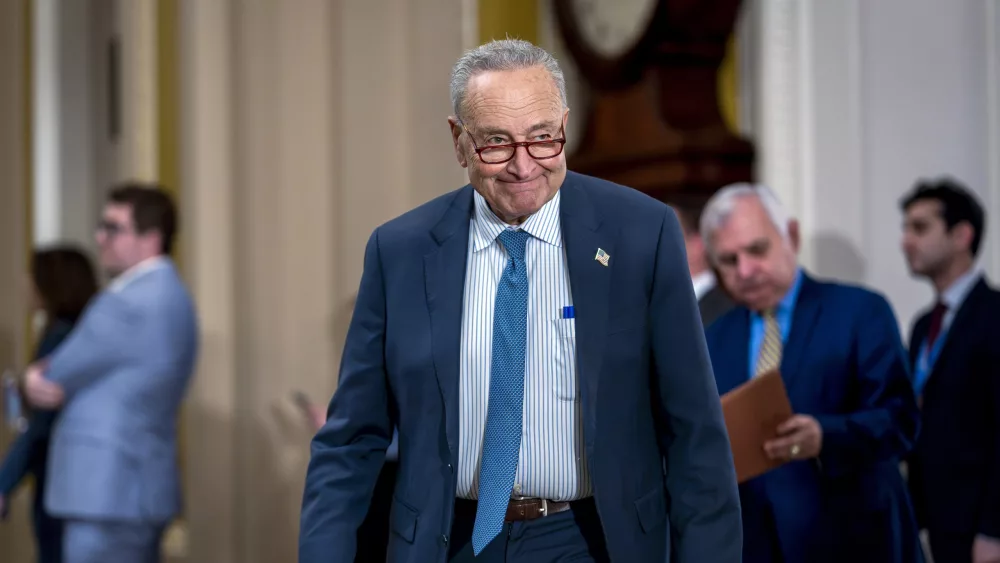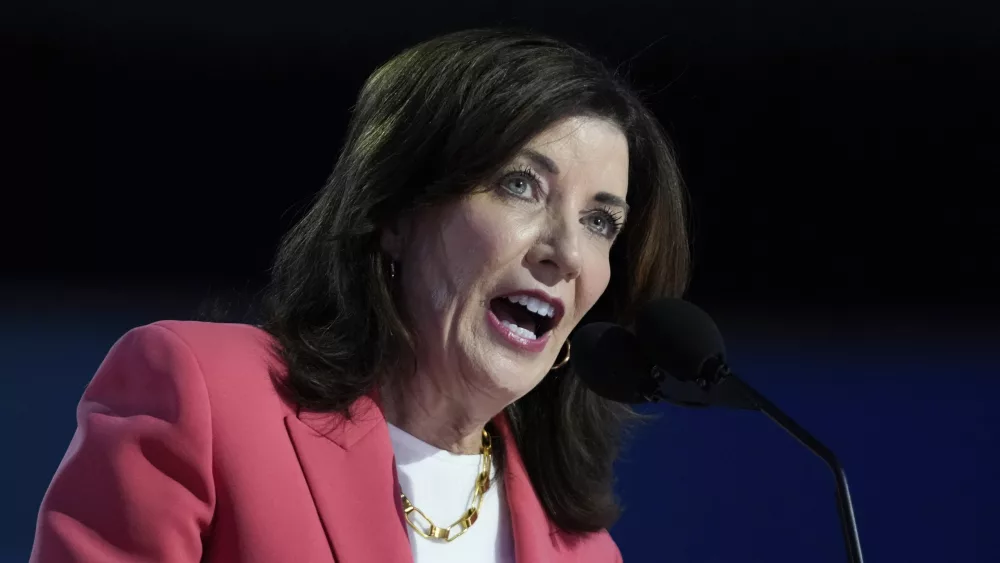The question posed to Vladimir Putin in September about the U.S. election drew a wry smile and an arched eyebrow from the Russian president.
Asked whether he preferred Donald Trump or Kamala Harris, Putin caught listeners up short with his teasing reply that also included a gentle jab at President Joe Biden.
“Our ‘favorite,’ if you can call it that, was the current president, Mr. Biden,” he told the audience at an economic forum in the Far East port of Vladivostok.
“But he was removed from the race, and he recommended all his supporters to support Ms. Harris. Well, we will do so — we will support her,” he said sardonically, citing her “expressive and infectious laugh” that shows “she’s doing well.”
The election Tuesday carries significant stakes for the Kremlin, and despite Putin’s noncommittal and somewhat teasing answer, it appeared to encapsulate Russia’s view as a choice between two unappealing possibilities.
Analysts say neither offers much promise of improving relations that have hit their lowest point since the Cold War.
Harris, the current vice president, has taken a hard line against Russia, while Trump, the former president, is known for his admiration of Putin. Still, at the September gathering, Putin complained that when Trump was in office, there were “so many restrictions and sanctions against Russia like no other president has ever introduced before him.”
Timothy Colton of the Harvard Academy for International and Area Studies said that the Kremlin leadership is “by and large convinced nothing good is going to come in the election from Russia’s point of view.”
But he added that on the whole, Trump “is probably their preference; he’s more of a known quantity.”
Key issues for Russia as the U.S. election looms:
Harris is seen as likely to continue the Biden administration’s massive military and economic support for Ukraine as Russia’s invasion stretches toward a third year.
Trump has bragged that his rapport with Putin and respect from Ukrainian President Volodymyr Zelenskyy are so strong that he could negotiate an end to the war “in 24 hours.” He declines to detail his strategy, but recent remarks criticizing sanctions in general suggest he could lift those against Russia as an inducement to help settle the conflict.
During their debate, Trump twice refused to directly answer whether he wanted Ukraine to win the war, while Harris praised Western support for Kyiv and urged it to continue.
“Otherwise, Putin would be sitting in Kyiv with his eyes on the rest of Europe. Starting with Poland,” she said.
Trump’s running-mate Sen. JD Vance has mentioned proposals that could suggest Trump’s thinking: having Ukraine demilitarize territory occupied by Russia and agree to permanent neutrality. Those terms would be anathema to Kyiv, but Trump has shown little sympathy for Ukraine, saying Zelenskyy “should never have let that war start.”
Harris has not specified how her position would differ from Biden’s. The U.S. has provided Ukraine more than $59.5 billion in weapons and assistance since Russia invaded in 2022. She has said previously it would be foolish to risk global alliances the U.S. has established and decried Putin’s “brutality.”
A Harris win “likely promises continued U.S. support as long at the administration can maintain congressional backing,” the International Crisis Group said in a commentary, though it said she could seek an end to the fighting more actively than Biden did. Growing congressional animosity to vast outlays of aid for Ukraine could hobble or reshape her strategy.
Harris has confronted Russia directly on such matters, particularly in the case of the death in prison of Russian opposition leader Alexei Navalny. She was among the first foreign leaders to comment on his death, calling it “a further sign of Putin’s brutality.”
Trump put off comment for days, then did not connect Putin to the matter. He likened Navalny’s punishment to his own fraud prosecution, calling his case “a form of Navalny.”
Trump has called for a bill declaring there to be only two genders and pledged to keep transgender women out of women’s sports — positions that parallel how Russia under Putin has rolled back LGBTQ+ rights and lauded “traditional values.”
His characterization of Democrats and his rivals as “the enemy within” is little different in spirit than Russia’s accelerating suppression of opposition.
Trump has wrestled with other members of the NATO alliance, demanding that they meet the agreed spending levels for their militaries in their national budgets. He said that as president, he warned leaders that he would not only refuse to defend nations that don’t meet those targets, but that Russia could “do whatever the hell they want” to such countries.
Trump also has questioned the NATO charter’s mutual-defense clause, asking in an interview why the United States should be obliged to defend the “very aggressive people” of NATO member Montenegro.
Harris says the United States’ commitment to NATO is “ironclad.” She has not weighed in on whether she supports Ukraine becoming an alliance member.
Putin has repeatedly brandished the nuclear sword as he seeks to deter the West from supporting Ukraine.
The last remaining nuclear arms control treaty between Moscow and Washington, New START, is to expire in 2026. a year after the new administration takes office, and its prospects are troubled.
Biden renewed the treaty quickly upon taking office, and Harris could be expected to follow that support for the pact that limits the number of intercontinental nuclear missile launchers.
Russia suspended participation in 2023 — although it did not withdraw — and the U.S. retaliated with measures including halting the sharing of information on missiles’ location and status.
Trump, although he has warned of the threat of “nuclear warming,” took steps while in office to dismantle the arms control regime, including pulling out of the INF Treaty on intermediate-range nuclear weapons — which banned ground-based nuclear and conventional missiles with a range of 500-5,500 kilometers (310-3,410 miles),
While in office, Trump called for a new nuclear pact that would include both Russia and China.
Brought to you by www.srnnews.com








